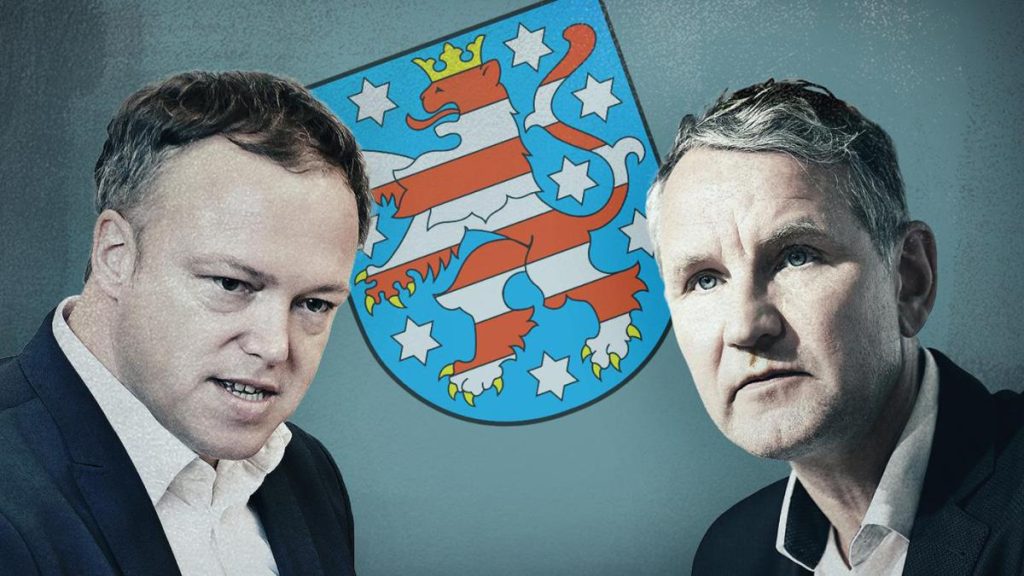In a televised debate between Thuringia’s AfD lead candidate Björn Höcke and CDU lead candidate Mario Voigt, Höcke claimed that the total cost of migration into Germany under Angela Merkel’s leadership amounted to 5.8 trillion euros, as estimated by economist Bernd Raffelhüschen. However, these figures are highly controversial among economists, with some critics arguing that the model used in the study is flawed. Economist Jens Südekum pointed out that the model assumes that every new migrant or native-born individual would be a burden on the social system in the future.
Höcke’s use of the slogan “Alles für Deutschland” at an AfD campaign event led to charges of using symbols of unconstitutional organizations, such as the SA. While Höcke claimed he was unaware of the historical significance of the slogan, critics argue that his repeated use of Nazi-era vocabulary raises concerns. The context in which such slogans are used is crucial in determining their appropriateness, as demonstrated by a court ruling in a similar case.
Höcke’s criticism of SPD politician Aydan Özoğuz for her comments on German culture and her use of public funds stirred controversy. Özoğuz had suggested that defining a specific German culture beyond language was challenging due to historical influences and diverse populations. Höcke’s remarks about her and her background have been met with criticisms of xenophobia and intolerance.
Höcke’s opponent accused him of being a fascist, citing a court ruling that allowed such labeling as a legitimate expression of opinion in the context of political discourse. While the use of such terms in political debates is allowed as a form of value judgment, it remains a contentious issue that can escalate tensions and debates.
Höcke’s proposal to cut development aid as a means to save government expenditure was met with skepticism, as official figures show the necessity of such funding towards sustainable development in various regions. The accuracy of his claims regarding budget allocations and the implications of cutting aid require further analysis and consideration in the context of economic policies.
On the topic of climate policies, Höcke blamed the CDU for the phasing out of combustion engine cars in the EU, suggesting that the decision was detrimental to the automotive industry. However, the decision was made at the EU level, with contributions from various political parties and considerations for climate goals. The debate surrounding the transition to electric vehicles and the role of different political parties in shaping policies remains a topic of contention.


